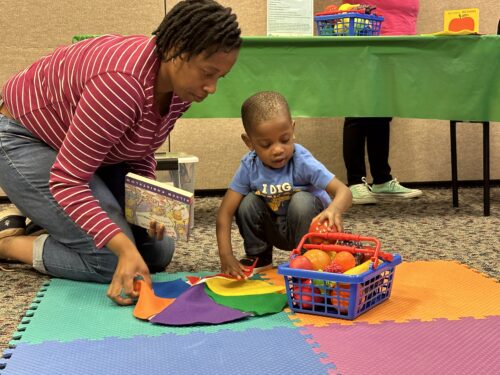Cognitive development is the foundation of a child’s ability to think, learn, and solve problems. In Greater Houston, Collaborative for Children is helping families understand how everyday parenting choices can shape a child’s brain development—starting from birth.
Who We AreCognitive learning refers to how children acquire knowledge and develop mental skills like memory, attention, reasoning, and problem-solving. According to early childhood experts, 90% of brain development occurs before age five, making this window critical for laying the groundwork for lifelong learning.
Children who receive strong cognitive stimulation early on are more likely to:
– Excel academically
– Develop emotional resilience
– Adapt to new environments
– Build strong social connections
Collaborative for Children’s STEAM-based curriculum and dual-generation approach ensure that both children and caregivers are equipped to support this vital growth.

The above video outlines five actionable ways parents can nurture cognitive learning at home. These strategies align with Collaborative for Children’s mission to empower families with tools that support early education.
Asking open-ended questions like “I wonder why the sky is blue?” helps children develop critical thinking and inquiry skills. This approach turns everyday moments into learning opportunities and fosters a growth mindset.
Reading aloud daily strengthens vocabulary, listening skills, and emotional bonding. Collaborative for Children recommends choosing age-appropriate books and discussing the story to deepen understanding.
Letting children struggle through tasks, like building a block tower or solving a puzzle, teaches perseverance and problem-solving. Parents can support this by offering encouragement rather than immediate solutions.
A healthy body supports a healthy mind. Nutritious meals, regular physical activity, and adequate sleep are essential for cognitive function. Collaborative for Children’s Centers of Excellence integrate movement and nutrition into daily routines.
Children learn best in environments that are safe, engaging, and rich in sensory experiences. Whether at home or in a certified child care center, surroundings should include books, art supplies, nature elements, and opportunities for exploration.
“I started using the ‘I wonder’ questions with my son, and now he’s constantly asking why and how things work,” says Jasmine R., a Houston mom. “It’s amazing to see his confidence grow just from small changes in how we talk and play.”
Download the I Wonder Parenting HandbookWhat is cognitive learning in early childhood?
Cognitive learning involves how young children think, explore, and figure things out, including memory, attention, and problem-solving.
How can I support my child’s cognitive development at home?
You can ask open-ended questions, read together, encourage play-based challenges, and create a stimulating environment.
What makes Centers of Excellence different from daycare?
Collaborative for Children offers certified early childhood education programs focused on STEAM learning, dual-generation support, and holistic child development.